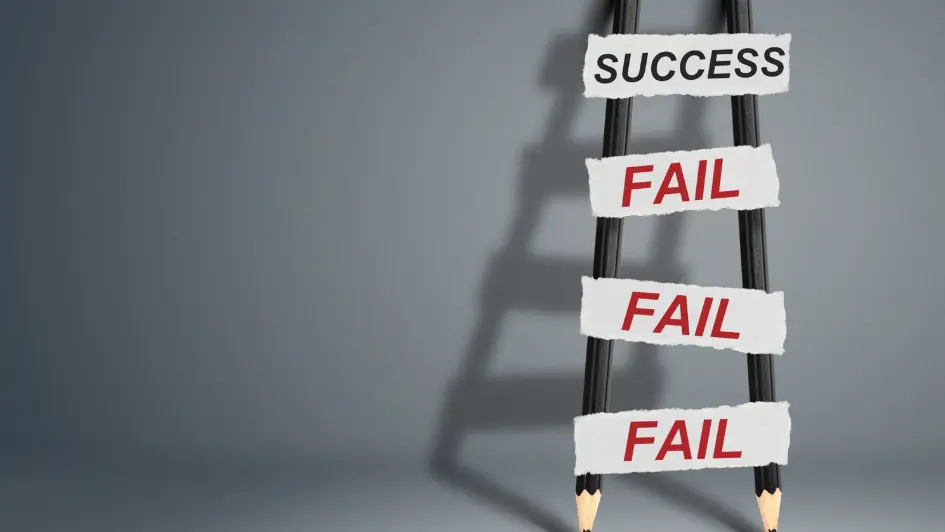Failures is the topic we are going to delve into in this article and it relates to a common interview question – “Tell me about the time you failed.”
This question is frequently asked during interviews to gauge a candidate’s ability to reflect on past failures and learn from them.
Failures are not good, but why organizations and interviewers are interested in knowing about them?
Have you given a thought to it?
Ideally, they should ask about the good things, right?
For example, they should focus on – what are your big-ticket achievements? Some of the great work you have managed, big teams you have handled, or large multi-geography complex projects that you have delivered successfully in your jobs.
We will tell you why failures are so important to organizations and interviewers.
Failures are like mirrors; they provide information about how candidates handle challenges and setbacks, and it allows the interviewer to assess a candidate’s self-awareness, honesty, and problem-solving skills.

By asking about a time when a candidate failed, the interviewer can gain insight into how the candidate responds to difficult situations.
Candidates who are able to reflect on their failures and identify what they learned from the experience demonstrate maturity, resilience, and a growth mindset.
These qualities are highly valued by employers and can be indicative of future success.
Furthermore, discussing about a failure allows the interviewer to assess how the candidate handles stress and adversity.
The ability to cope with failure and bounce back from setbacks is a critical skill in any job, especially in fast-paced and high-pressure environments.
So, now that you understand to some measure why Failures are so important from an interview standpoint, we will direct our focus toward how to answer this question.
When answering this question, it is important to focus on the lessons you have learned from the experience, how you grew from it, and how you were able to turn it into a positive outcome.

When you are preparing for an interview, and you are deliberating on how to frame your answer for this question, we would suggest you do a small exercise.
It will help you get to the answer pretty quickly and mind you it will be a genuine answer and not really a fabricated answer only meant for cracking the interview.
So, take out a notebook, and a pen, and find out a quiet place in your house or it could be in a park or a place you like to spend some time alone.
Now, once you have done that, take a few deep breaths and travel back in time, and ponder deeply on your failures.
They may be small or big, doesn’t matter, just reflect upon them.
And once you start thinking about them, they will start to come to you, in your remembrance.
It could be failing an exam, failing to deliver on a project, failing to do something important or failing to understand someone, failing to build a relationship with someone, or for that matter, failing in a relationship.
Professional or personal, it doesn’t matter, though I would keep my answer limited to professional failures to avoid too much venturing into personal life during an interview.

Now once you have got to some of the failures of your life, write them down one by one in the notebook.
For each failure you should write about Why, How, and When related to that failure and then focus on what lessons came out of it.
How did you manage to deal with that failure, what was your next step, how you turned around things, and how you dealt with that situation?
Think about all these points and once you have made your notes, try to frame your answer keeping your focus on only one failure that you feel would be apt to mention to the interviewer.
In this way, you will be able to provide a genuine answer, and since it will be from your own life, you will be able to answer all the other questions on that topic.
Here’s an example of how you could answer this question:
“During my first-year graduation, I failed in Chemistry exam. It was because I took on too many extracurricular activities and part-time jobs, which left me with very little time to focus on my coursework. As a result, I ended up failing a class.
At first, I was devastated and felt like I had let myself down. However, I realized that this failure was an opportunity to learn and grow. I reflected on my priorities and realized that I needed to make some changes. I dropped a few of my extracurricular activities and cut back on my work hours so that I could dedicate more time to my studies.
In the end, this experience taught me the importance of time management and prioritization. I was able to improve my grades in subsequent semesters and even landed an internship that I may not have been able to secure if I hadn’t learned these lessons from my failure.”
Here is another example of an answer framework:
“In my current Job, once, I was leading a team of designers and developers to create a new website for a client. We were working on a tight deadline, and I thought I had everything under control. However, a few days before the deadline, I realized that we were falling behind schedule. I had underestimated the amount of work required, and I had not effectively communicated the timeline to my team.
At the end of the project, we missed the deadline by a day. I felt like I had let down the client and my team, but I knew that I had to take responsibility for my mistakes. I scheduled a meeting with the client to apologize and to discuss how we could make things right. I also had a team meeting to discuss what we could do better in the future.
From this experience, I learned that it’s important to set realistic deadlines and communicate them clearly with my team. I also learned the value of taking responsibility for my mistakes and working to find solutions.”
So, you see, how you can change your failures into opportunities full of lessons for life.

It is all about perspective, how you view things. Both Success and Failures are relative terms like right or wrong.
Hope the information provided was helpful. With this, we are confident that you will be able to construct an appropriate response to the question.
Good Luck!


